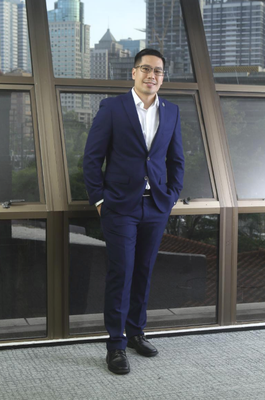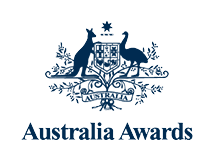Progress through People-to-People Links: Australia Awards alumnus Angelo Trias talks about social change by creating connections

By the mid-2000s, however, Angelo found himself wanting to do more. “I wanted to go into development where I could answer my call for public service.”
Responding to the call
It was then that he was led to the company’s corporate service division, where they formed a team of experts from different fields to engage communities through NGOs. “That was life-changing. It showed me that I can transfer my skills to different sectors while understanding the context and content of what is happening around me.”
It was also around that time when Angelo learned about the Australia Awards. When he was accepted into the program, he attended the Australia Awards course counselling workshop where he had an eye-opening talk with a professor at Charles Darwin University in the Northern Territory. “While talking to the people behind the Darwin program, I realised that I was well-suited to focus on emergency and disaster management. I already had experience in project management particularly risk analysis. I could also draw on my social science background. I decided that this was an area that I would like to contribute to.”
Growing as a development practitioner
The community at Charles Darwin University gave Angelo experiences that helped him grow as a development practitioner while in Australia. “ There was not as many Filipino student associations in Darwin, so I found myself with opportunity to engage with the larger community. I met people with the experience and network that opened doors for me,” he said.
He was tapped by a professor to develop a multimedia scenario tool, much like ‘The SIMS’ game, where one could interact with people in an emergency situation to help craft decisions. He was also able to work with a humanitarian community studies program which enabled him to do a program presentation in Melbourne about Humanitarian Leadership. “When I trace all of these, it all comes back to people-to-people links; it is about someone linking me to someone.”
He also found himself helping out when an emergency struck the area. “They had a big flood, and I was wondering why people found it urgent to evacuate. Then I was told that they had to get out quickly because crocodiles were bound to come out as the water rose,” he recalled.
Applying what he learned
When Angelo came back to the Philippines, he was determined to contribute through public service. As a first step, he applied for a research position at the Asian Institute of Management (AIM). When they saw his resume that combined his background in project management and his postgraduate studies on emergency and disaster management, they asked him to develop a program on disaster risk management that targeted not only government and first response agencies, but also different fields in the private sector.
“We need managers who can clearly define and understand the issues related to disasters and who have the strategic skills to take us from point A to point B,” he explained. What they are doing with this program, he says, is to train people who are capable of leading teams in dynamic and complex environments.
Angelo aims to widen his scope further, focusing on an even bigger picture that he hopes will help mitigate the impact of future disasters. “As we become high-tech we need to look into what would happen if the system breaks. We need to form a group that will look at emergencies through a national security type of lens so we can mitigate it when something goes wrong. In the end, it is about understanding the risks we have and addressing them before they happen.”
Whether managing his current program or innovating future solutions, Angelo goes back to the value of people-to-people links. His experience in Australia taught him to create a proverbial ‘ripple in a pond’. “In development, you cannot do anything alone. We can only contribute to a certain part, and see the impact on the next generations.”

